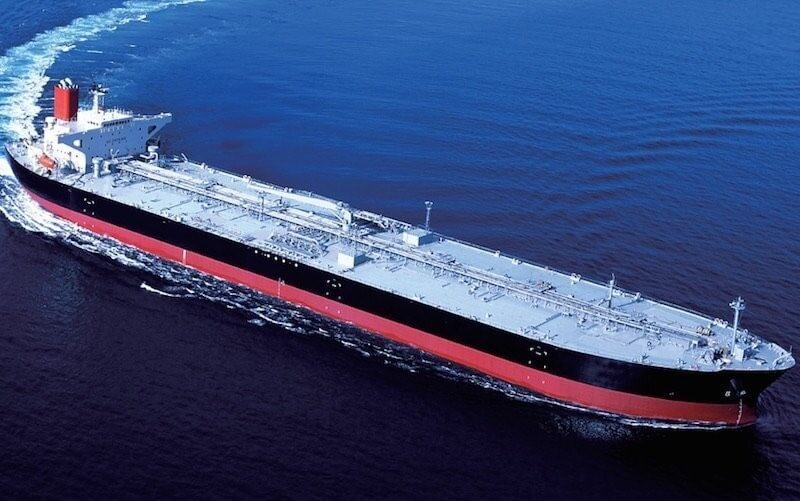How AGO/PMS Tankers are Revolutionizing the Oil and Gas Industry
The oil and gas industry is undergoing a revolution with the introduction of AGO/PMS tankers. The tankers are revolutionizing the way the oil and gas industry transports and stores its products, offering a more efficient and cost-effective solution.
The tankers are designed to transport and store both Automotive Gas Oil (AGO) and Premium Motor Spirit (PMS). Diesel fuel is used in vehicles as AGO, while gasoline is used as PMS. This eliminates the need for separate tankers for each type of fuel, reducing costs and increasing efficiency.
The tankers are also designed to be more efficient and cost-effective than traditional tankers. They are constructed with lightweight materials, such as aluminum and stainless steel, which reduce the overall weight of the tanker and make it easier to transport. Additionally, the tankers are equipped with advanced safety features, such as fire suppression systems and leak detection systems, which help to reduce the risk of accidents and spills.
Traditional tankers are outperformed by the design of the new tankers, which are designed to be more environmentally friendly. Advanced filtration systems are installed in the tankers to minimize emissions and improve air quality. The tankers are also engineered to be more fuel-efficient, requiring less fuel to transport and store the fuel.
Overall, AGO/PMS tankers are revolutionizing the oil and gas industry by providing a more efficient and cost-effective solution for transporting and storing fuel. They are designed to be more efficient, cost-effective, and environmentally friendly than traditional tankers, making them an ideal solution for the industry.
The Benefits of Automated Provision of Product Tankers
The use of automated product tankers has become increasingly popular in the maritime industry due to the numerous benefits they offer. Automated product tankers operate with minimal human intervention thanks to their advanced technology and automation systems. These systems have revolutionized the operation of product tankers, providing the industry with numerous advantages.
One of the primary benefits of automated product tankers is increased safety. Automated systems are able to monitor and control the vessel’s operations more accurately and efficiently than a human operator, reducing the risk of human error. Automated systems also allow for more precise navigation, reducing the risk of collisions and other accidents. Additionally, automated systems can detect and respond to potential hazards more quickly than human operator, further increasing safety.
Automated product tankers improve efficiency, providing another benefit. Automated systems can monitor and control vessel operations more accurately and efficiently than humans. This results in more efficient use of fuel and other resources. Automated systems also allow for more precise navigation, reducing the time spent on voyages and increasing the vessel’s overall efficiency.
Finally, automated product tankers provide cost savings. Automated systems require less maintenance and fewer personnel than traditional vessels, resulting in lower operating costs. Additionally, automated systems can reduce the risk of accidents. This reduction in risk can result in significant savings in terms of insurance premiums and other costs associated with accidents.
In conclusion, automated product tankers offer numerous benefits to the maritime industry, including increased safety, improved efficiency, and cost savings. Automated systems are able to monitor and control the vessel’s operations more accurately and efficiently than human operators. This results in numerous advantages for the industry.
The Impact of AGO/PMS Tankers on the Environment and Sustainability
The use of AGO/PMS tankers has had a significant impact on the environment and sustainability. Petroleum products such as gasoline, diesel, and jet fuel are transported by large vessels called AGO/PMS tankers. These tankers are responsible for a significant portion of the world’s oil transportation, and as such, their environmental impact is significant.
The most obvious environmental impact of AGO/PMS tankers is the release of pollutants into the air. Diesel engines power these tankers, emitting pollutants such as carbon dioxide, nitrogen oxides, and sulfur dioxide. These pollutants contribute to air pollution, which can have a range of negative effects on human health and the environment.
The use of AGO/PMS tankers also has an impact on water quality. Tankers often discharge wastewater and other pollutants into the ocean, which can have a negative effect on marine life and water quality. Additionally, the use of AGO/PMS tankers can lead to oil spills, which can have devastating effects on the environment.
Finally, the use of AGO/PMS tankers has an impact on sustainability. The burning of fossil fuels to power these tankers contributes to climate change, which can have a range of negative effects on the environment. Additionally, the use of these tankers can lead to the depletion of natural resources, which can have a long-term impact on sustainability.
In order to reduce the environmental impact of AGO/PMS tankers, it is important to take steps to reduce their emissions and improve their efficiency. This can include using cleaner fuels, such as biodiesel, and investing in more efficient engines. Furthermore, ensuring proper maintenance of tankers and environmentally responsible disposal of wastewater and pollutants is crucial.
By taking steps to reduce the environmental impact of AGO/PMS tankers, we can help to ensure a more sustainable future.


Recent Comments